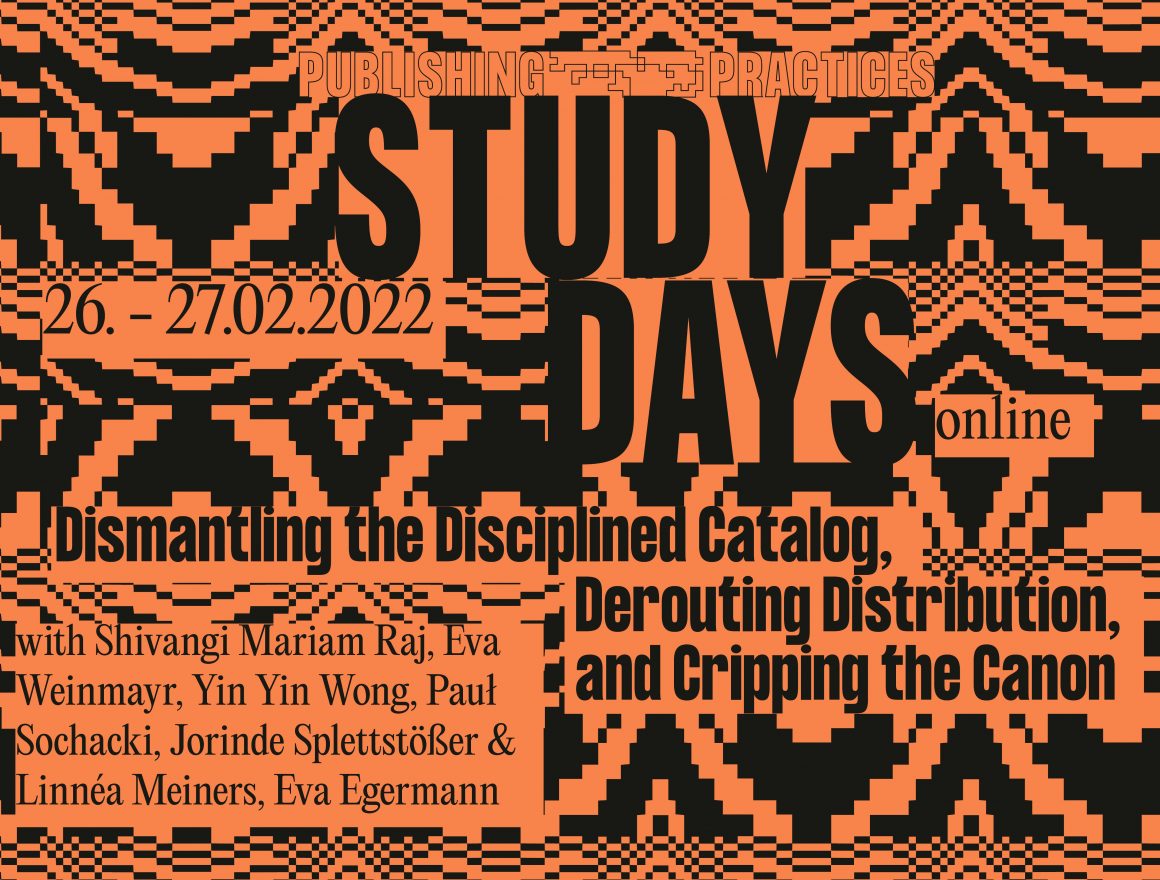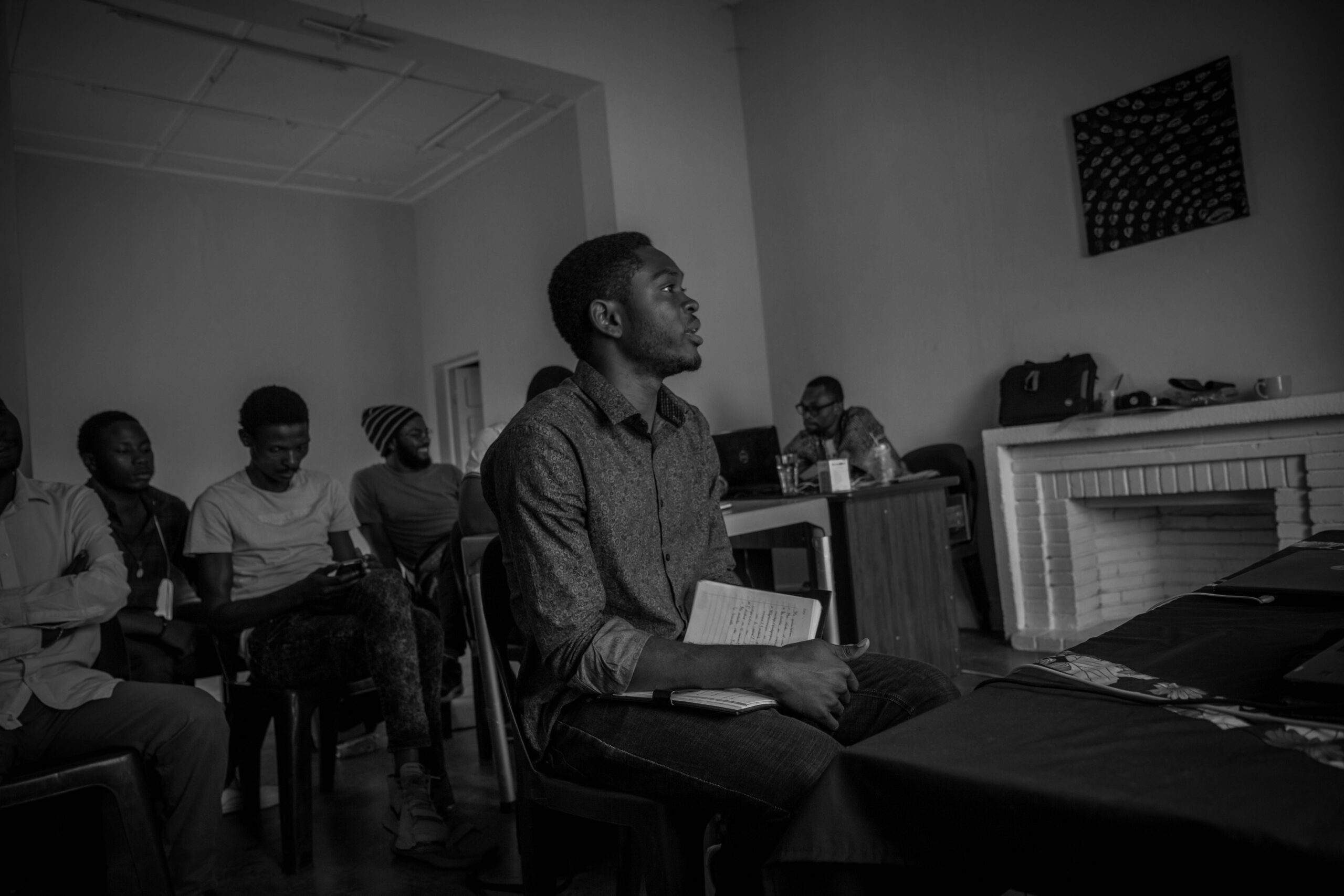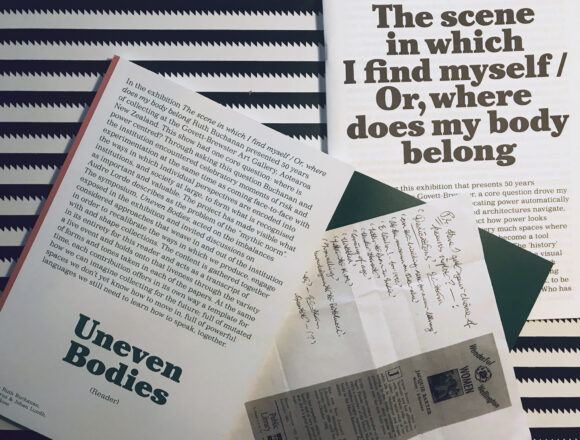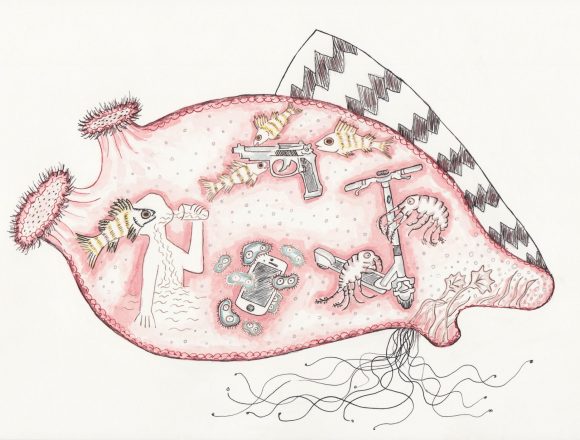
Dismantling the Disciplined Catalogue
Knowledge has long been and still is confined by spatial politics and the way our bodies are distributed along and across geographical borders. The Funambulist magazine is literally a rope dancer of a magazine, connecting threads from political struggles and researches from locals of different places in the world. Shivangi Mariam Raj will invite listeners to her journey to the magazine and the magazine’s journey to create an archive of its own.
What could Radical Librarianship look like? In approaching long-standing libraries, we unearth inscribed manifested mechanisms of exclusion and elitism. Amongst others, it is a feminist task to dismantle and disrupt a universalist Western approach to naming and framing, processes of validation and biases of categorizing knowledge. Eva Weinmayr will talk about the recent collaborative research project Teaching the Radical Catalog – a syllabus (with Lucie Kolb) mapping current interventions and practices addressing this task.
Derouting Distribution
Unequal access and hierarchies of information production coincide with exclusionary patterns of distribution. The boundaries rarely crossed are geographical and class-based. Especially in transnational print activism, decisions about the medium – for whom, how, and by whom verbal information is perceived, circulated and given meaning – are critical. How can we de- and re-route channels of distribution facing the materiality of print culture?
Pauł Sochacki co-founded Arts of the Working Class (together with Ines María Inés Plaza Lazo and Alina Kolar) in 2018 and since then has developed its distribution scheme with street vendors and multiple pick-up places in Berlin and other cities. AWC’s model aims to create a subtantial shift in an art world that often stops at symbolic and theoretical criticism. AWC’s activities involve houseless and other vulnerable groups, but their raising demands for newspapers to be sold in the summer months collide with ecological and economic considerations.
publication studio(s) provide an infrastructure in which small print runs of books can be produced on site, limiting storage costs and over-production. Distribution works in collaboration with other publication studios in the network, producing small print runs of the same book in the studio in their respective locality. This system is carried by ten studios in the United States, Canada, Europe, Asia and South America. Yin Yin Wong co-initiated and ran the Publication Studio Rotterdam (2015-2021).
Cripping the Canon
Which pathways to publishing are opened up when centering human vulnerability? Access is denied to many disabled and sick authors and readers by practices of dominant ableism, which systematically normalize ability and separateness. Cripping the Canon could be understood as an imperative for a practice in which inseperability is celebrated from a focus on anti-ableism. This emphasis critically interrogates global and local forms of interdependence, dismantling ableist logics inherent in colonial modes of oppression.
Jorinde Splettstößer and Linnéa Meiners translated their curatorial practice back and forth into space and words. As part of their work for the communal Galerie im Turm (Berlin) they have engaged with artists with sicknesses and disabilities. They also opened up the space to audiences who have, for instance, difficulties in reading and writing by providing texts in “plain German language” – a set of rules that requests authors to limit the complexity of their writing and demands clear political positioning.
Crip Magazine is a self-published magazine, released on an irregular basis. It refers to the history of the disability rights movement, with 80% of its contributors identifying as disabled. Drawing on the reclamation of the term crip (as in Crip Theory) that emerged within disability studies and activism in the 1970s, the magazine overturns the ableist and hyper-productive framing of bodies within capitalism. Eva Egermann, initiator and publisher of the magazine draws a line between collective political publishing in Vienna after 2000, editorial care work, learning processes of insitutions and the recent collectivization of Crip Magazine.
Publishing Practices #1
Study days
Dismantling the Disciplined Catalog, Derouting Distribution, and Cripping the Canon
Subversive forms of publishing are incited by a communal will and commitment to epistemic disobedience, through practices of delinking knowledge from Western rationality and dominant worldviews. Online and offline publications play a vital role as companions to struggles, as means of resistance, and as bridges across borders and generations. Radical publishing cultures involve themselves in establishing those bridges, or retracing severed pathways. The Study days are conceived as bridge-building between three correlated facets, Dismantling the Disciplined Catalog, Derouting Distribution, and Cripping the Canon.
Program
Saturday, 26.02.2022 (CET)
Sunday, 27.02.2022 (CET)
Bios of the Contributors
In her research-based and collaborative practice, Eva Egermann engages with activist strategies, various subcultures and a range of artistic approaches. Her works and interventions deconstruct binary constellations such as health/illness, ability/inability, vulnerability/strength and persistently aim at the artistic renegotiation of reality. She lives and works in Vienna.
Linnéa Meiners (she/her) is a Berlin based curator and film director. She focusses on the aesthetics of resistance in art. Her work deals with the relationships between politics, arts and solidarity. She works at Galerie im Turm as a curator and at Kunstraum Kreuzberg as curatorial researcher. Her current film project investigates disability, chronic illness and neurodiversity.
Shivangi Mariam Raj is a translator and independent researcher from Delhi, India. Her essays, reportage, and poetry have appeared across newspapers, zines, magazines, and pamphlets published in India, Sri Lanka, Kashmir, Bangladesh, Hong Kong, and Nepal. Her current research draws upon sociolinguistics and ethnography to trace brahminical violence embedded in the Hindi language and its normalization in majoritarian routines and rituals in India. She is serving as the Head of Communications at The Funambulist.
Pauł Sochacki is a painter and co-founder of the street magazine Arts of the Working Class. He works in Berlin, Hamburg and Ustrzyki Dolne.
Jorinde Splettstößer (she) is co-curator of the two–year long exhibition and event series My Working Will Be The Work. On self/care, labour and solidarity at Galerie im Turm. She works in cultural education, exhibitions and recently certified as a translator in plain language.
Eva Weinmayr is an artist, educator, researcher and writer based in London and Gothenburg. She investigates in her work the border crossings between contemporary art, radical education and institutional analysis by experimenting with modes of queer knowledge formation. In 2009 she co-founded AND Publishing, a feminist publishing platform and collaborative practice based in London and Gothenburg. AND explores the politics and infrastructures of publishing and dissemination by asking Why publish, how and for whom?
Yin Yin Wong is a designer, artist, educator and publisher based in Rotterdam. Her practice revolves around dissemination, circulation, agency, and access to art through publishing, public intervention, and graphic design.
Ongoing Projects in Berlin
Publishing Practices

Part of a series of preparatory sessions for the ongoing initiative Publishing Practices. Organized in concert with Atelier Picha, Lubumbashi.
A sessions in Accra in connection with CritLab organized by Foundation for Contemporary Art-Ghana. (tbc)
Part of the series of preparatory gatherings for Publishing Practices, this session connect with the project In search of archives and it’s organized in concert with Les Archives Bouanani, Rabat.
Last gathering for Publishing Practices in 2020, this session activates the feminist library run by Radio AWU and Archive in Dakar.


